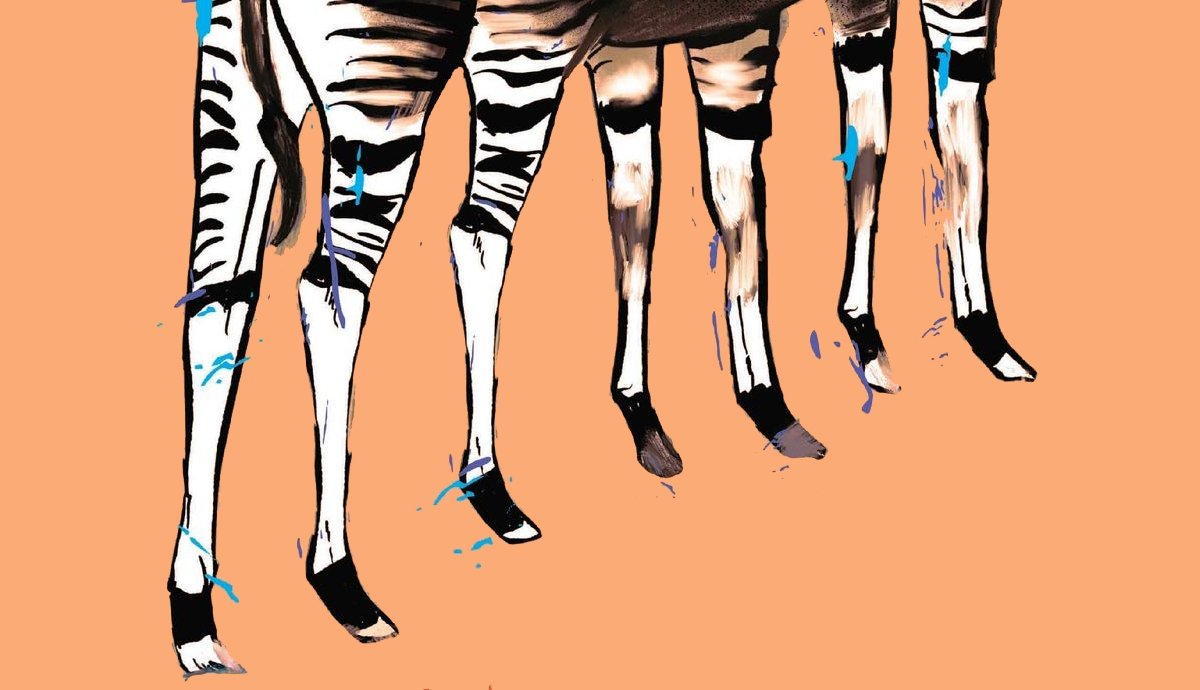What I want from a short story, first and foremost, is story. I want to experience that most elemental of reactions, fostered from being read to as a child, an eagerness to know what happens next. I want memorable characters motivated in ways that I can embrace, regardless if their circumstances are far different from mine. I want a light thrown on the complexity of what it means to be human. I want an understanding and appreciation of language and its capabilities. I want to be entertained. If the writer makes me smile or laugh on occasion, well, I’ve been given a bonus. In Megafauna, Flora S. Schildknecht gives the reader all this, and more.
 What these seven stories have in common is an aimlessness of heart, and a search for home, or, put another way, belonging. None of these characters belong, either by their own doing or by circumstance or both. One of the central conditions of these characters is their disassociation from their own families, each one a daughter, a mother, stepmother, a wife, a lover. But none of the blood connections in these stories work. And the draw of these stories is how they don’t.
What these seven stories have in common is an aimlessness of heart, and a search for home, or, put another way, belonging. None of these characters belong, either by their own doing or by circumstance or both. One of the central conditions of these characters is their disassociation from their own families, each one a daughter, a mother, stepmother, a wife, a lover. But none of the blood connections in these stories work. And the draw of these stories is how they don’t.
Schildknecht writes well. She writes lyrical sentences that dispense information in such a satisfying way that you hardly notice you are absorbing that information. Examples abound. A woman wakes up a small child. The child “was soft and cooperative, like her mind was soft and fuzzy around the edges.” A daughter visits her dissolute father’s house: “A swampy, ripe perfume hung in the air that had notes of rotting fruit, linseed oil, and stale beer.” The word notes reverberates. A remote, cold lake in Oregon: “The waves lapped the shore, rhythmic and uncaring.” A homeless man approaches a character’s closed car window: “The man slapped his grimy hand on the driver’s side window, smacking the glass right by Jennifer’s face, palm swelling against the clear barrier, a sore in the center of his hand, opening like a mouth.” Schildknecht can be witty and droll, too, in her descriptions, sometimes, with an understated delivery, nearly missing you. A girl tells her parents she might want to become an artist: “Her parents looked satisfyingly concerned….” A plastic playground slide is conjectured to have been marred “by a simple act of malice and lighter fluid.”
In defiance of E.M. Forster’s famous adage, people do not connect in these stories. Love? It’s rare in Schildknecht’s world. We usually enter her stories after love has died, or when it is in the process of dying. There is very little trust in these situations. Fathers desert families. Mothers are distracted, careless. Envy plays a prominent role—an emotion we are embarrassed to own, yet, more often than we’d like to admit, harbor. A girl envies her classmates ability to draw and prays to God that the girl will never return. And she doesn’t. A daughter, envious of her painter father’s praise for her female roommate, finds that roommate posing for her father topless.
The one exception in tone and form is “The Mommies,” which lies somewhere between satire and lampoon. This story of how the struggle to adhere, actually and emotionally, to the latest trends of raising “your free-range, organic baby” by all sorts of awkward, cult-like behaviors, is funny and alarming, as the best satire is. It’s hard to resist a line like this one, issued by the story’s spokes-mother: “Did you know that almost seventy-five percent of boys named Kevin are convicted of a felony before they turn thirty?” When a writer makes you laugh, readers—including this one—often have two reactions. One, of course, is delight. No one can deny the zeal of laughing. The second, though, can be a slight snobbishness, because, you think, a writer who makes you laugh can’t be taken seriously. At least not as seriously as a writer who makes you frown. (Am I alone in thinking it’s absurd that David Sedaris has never been awarded a Pulitzer Prize?) I think the fact that Schildknecht makes me laugh is a sign of her seriousness as a writer.
Summarizing the plot of a story cannot do justice to it and, in fact, can do it a grave injustice. If I tell you that Schildknecht’s “The Naming of Cats” is about how a stray kitten sours a relationship between a mother and her daughter, you will most likely look at those words quizzically. Delve into the story, though, and you’ll see how this works out so well for you. It’s in the unfolding, in the building, the layering, the Adam-and-Eve-like creation of characters, and in the music of the prose itself, that a story becomes. Read “The Naming of Cats” for a shining example of the skilled unfolding of a child’s growing disaffection with her mother in the throes of a divorce with, yes, a stray cat as the catalyst.
One of my favorite stories in the book is “Bad Signs,” about a woman and her stepson on a hike in Oregon. Schildknecht is quite good with setting, doing a superb job of rendering a squalid French refugee camp in the title story, for example. Here the difficulties between stepmother and her asthmatic stepson, in the face of a missing husband/father, are put into stark relief by a landscape that seems out of a Caspar David Friedrich painting—nature at its most indifferent. “How can any one person be responsible for another?” the stepmother asks rhetorically, and yet she strives to become that person with regards to her stepson. Schildknecht deftly shows us that our perceived roles too often cloud our vision. We can forget that another person’s life is just as intricate and irremediable as our own.
With Megafauna, Flora S. Schildknecht provides many satisfactions with a range of compelling stories, showing a writer comfortable with the idea that there is no logic to being human. There is only yearning and searching and trying.



